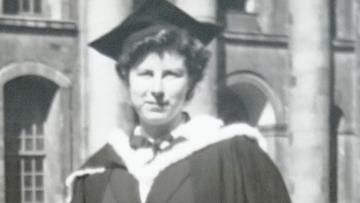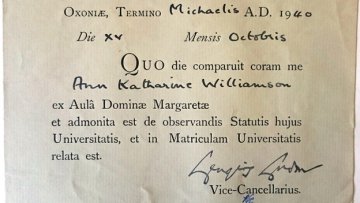Mining learning analytics to optimise student learning journeys on the intelligent tutor, Maths-Whizz
A discussion session will follow the workshop and those interested are invited to stay in the meeting for the discussions.
Abstract
Maths-Whizz is an online, virtual maths tutor for 5-13 year-olds that is designed to behave like a human tutor. Using adaptive assessment and decision-tree algorithms, the virtual tutor guides each student along a personalised learning journey tailored to their needs. As students interact with the tutor, the system captures a range of learning analytics as an automatic by-product. These analytics, collected on a per-lesson and per-question basis, then inform a range of research projects centred on students' learning patterns. This workshop will introduce the mechanics of the Maths-Whizz tutor, as well as its related learning analytics. We will summarise the research behind four InfoMM mini-projects and present open questions we are currently grappling with. Maths-Whizz has supported over a million children and thousands of schools worldwide, from the UK and US to rural Kenya, the DRC and Mexico. In a world of social distancing and widespread school closures, the need for virtual tutoring has never been more paramount to children's learning - and nor has your data analytical expertise!
Kirchberg’s QWEP Conjecture: Between Connes’ and Tsirelson’s Problems
Part of UK virtual operator algebra seminar: https://sites.google.com/view/uk-operator-algebras-seminar/home
Abstract
In January of this year, a solution to Connes' Embedding Problem was announced on arXiv. The paper itself deals firmly in the realm of information theory and relies on a vast network of implications built by many hands over many years to get from an efficient reduction of the so-called Halting problem back to the existence of finite von Neumann algebras that lack nice finite-dimensional approximations. The seminal link in this chain was forged by astonishing results of Kirchberg which showed that Connes' Embedding Problem is equivalent to what is now known as Kirchberg's QWEP Conjecture. In this talk, I aim to introduce Kirchberg's conjecture and to touch on some of the many deep insights in the theory surrounding it.
Some examples of the Baum-Connes assembly map
Part of UK virtual operator algebras seminar: https://sites.google.com/view/uk-operator-algebras-seminar/home
Abstract
We will introduce the Baum-Connes conjecture without coefficients, in the setting of discrete groups, and try to explain why it is interesting for operator algebraists. We will give some idea of the LHS and the RHS of the conjecture, without being too formal, and rather than trying to define the assembly map, we will explain what it does for finite groups, for the integers, for free groups, and finally for wreath products of a finite group with the integers (the latter result is joint work with R. Flores and S. Pooya; it raises a few open questions about classifying the corresponding group C*-algebras up to isomorphism).
Cuntz semigroups
Part of the UK virtual operator algebras seminar: https://sites.google.com/view/uk-operator-algebras-seminar/home
Abstract
The Cuntz semigroup is a geometric refinement of K-theory that plays an important role in the structure theory of C*-algebras. It is defined analogously to the Murray-von Neumann semigroup by using equivalence classes of positive elements instead of projections.
Starting with the definition of the Cuntz semigroup of a C*-algebra, we will look at some of its classical applications. I will then talk about the recent breakthroughs in the structure theory of Cuntz semigroups and some of the consequences.
Expanders and generalisations
Part of the UK virtual operator algebras seminar: https://sites.google.com/view/uk-operator-algebras-seminar/home
Abstract
After recalling some motivation for studying highly-connected graphs in the context of operator algebras and large-scale geometry, we will introduce the notion of "asymptotic expansion" recently defined by Li, Nowak, Spakula and Zhang. We will explore some applications of this definition, hopefully culminating in joint work with Li, Vigolo and Zhang.
An introduction to Cuntz--Pimsner algebras
Part of UK virtual operator algebras seminar: https://sites.google.com/view/uk-operator-algebras-seminar/home
Abstract
In 1997 Pimsner described how to construct two universal C*-algebras associated with an injective C*-correspondence, now known as the Toeplitz--Pimsner and Cuntz--Pimsner algebras. In this talk I will recall their construction, focusing for simplicity on the case of a finitely generated projective correspondence. I will describe the associated six-term exact sequence in K(K)-theory and explain how these can be used in practice for computational purposes. Finally, I will describe how, in the case of a self-Morita equivalence, these exact sequences can be interpreted as an operator algebraic version of the classical Gysin sequence for circle bundles.
When Ann Mitchell was called up for war service in 1943 in the Foreign Office, she had no idea what kind of job she was accepting. The Oxford Mathematics graduate spent the next two years at Bletchley Park, cracking the secret Enigma messages sent by the Germans in the Second World War. It was the beginning of a remarkable life.
On the circle, GMC = CBE
Abstract
In this talk, I would like to advertise the strict equality between two objects from very different areas of mathematical physics:
- Kahane's Gaussian Multiplicative Chaos (GMC), which uses a log-correlated field as input and plays an important role in certain conformal field theories.
- A reference model in random matrices called the Circular Beta Ensemble (CBE).
The goal is to give a precise theorem whose loose form is GMC = CBE. Although it was known that random matrices exhibit log-correlated features, such an exact correspondence is quite a surprise.




